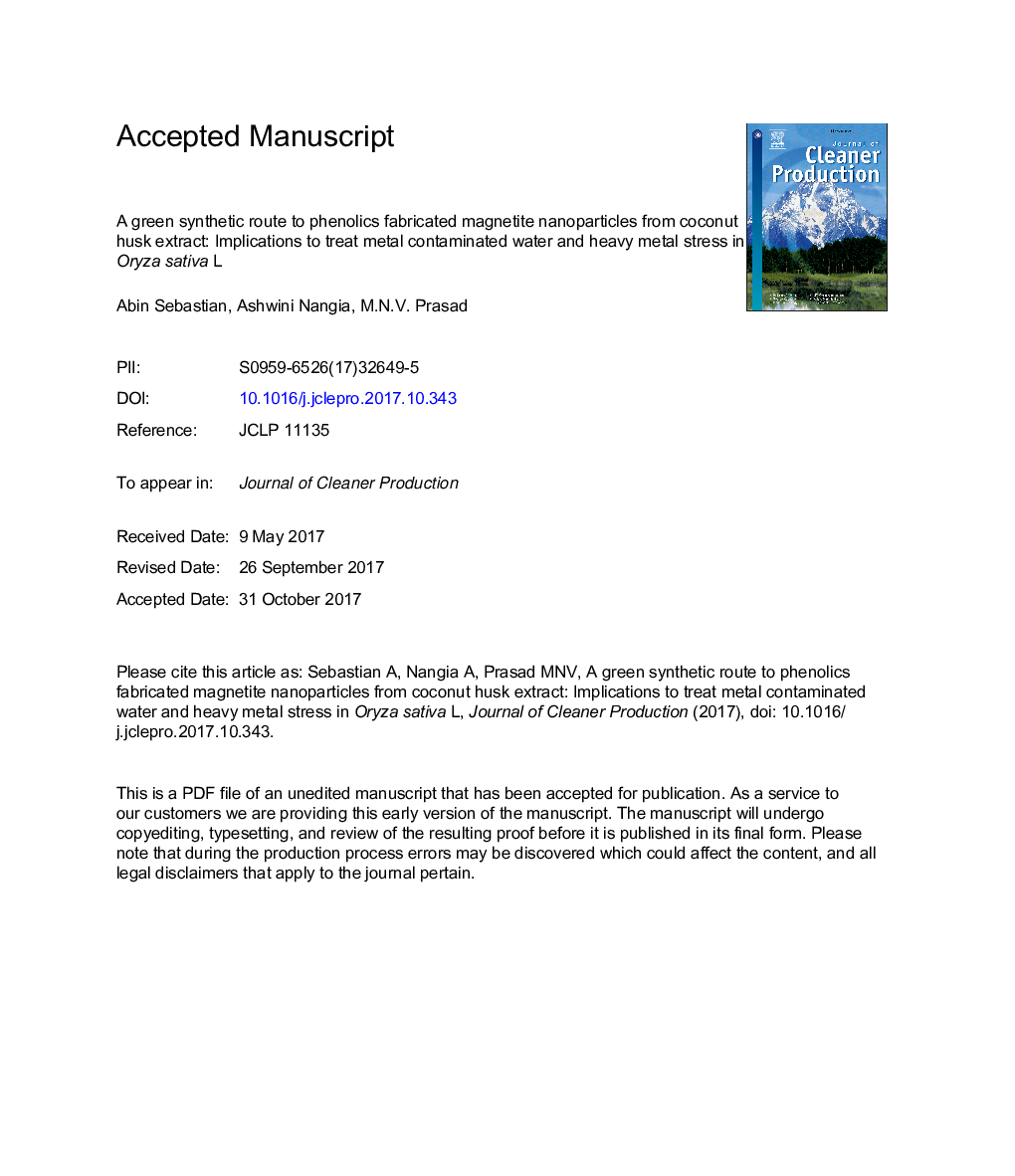| Article ID | Journal | Published Year | Pages | File Type |
|---|---|---|---|---|
| 8099426 | Journal of Cleaner Production | 2018 | 32 Pages |
Abstract
Iron oxide nanoparticles are biocompatible. Therefore these particles are in demand for environmental cleanup. In the present study, semicrystalline magnetite nanoparticles synthesized by mixing equal volume of 10.0 mM ferric chloride solution and coconut husk extract (10.0 g Lâ1) at room temperature. Phenolics in the husk extract fabricated onto nanoparticles. These particles found to efficiently adsorb Ca and Cd from aqueous media. Kinetic studies indicated metal adsorption was a combined effect of both physical and chemical processes. Equilibrium studies showed maximum adsorption capacity of particles for Ca (13.7 mg gâ1) and Cd (9.6 mg gâ1). Calcium and Cd adsorption fitted well to Langmuir and Freundlich isotherm respectively. Both Ca and Cd had maximum adsorption at pH 6.0 and temperature 30.0 °C. Amendment of the nanoparticles (0.5 mg gâ1 sand) enhanced Fe accumulation in rice plants and enabled Ca as well as Cd tolerance. Plant growth promoting effects of the nanoparticles reflected as an increase of biomass, the quantum yield of photochemistry, and chlorophyll content. Thus it is concluded that nanoparticle produced in the study is an eco-friendly material for environmental remediation.
Related Topics
Physical Sciences and Engineering
Energy
Renewable Energy, Sustainability and the Environment
Authors
Abin Sebastian, Ashwini Nangia, M.N.V. Prasad,
